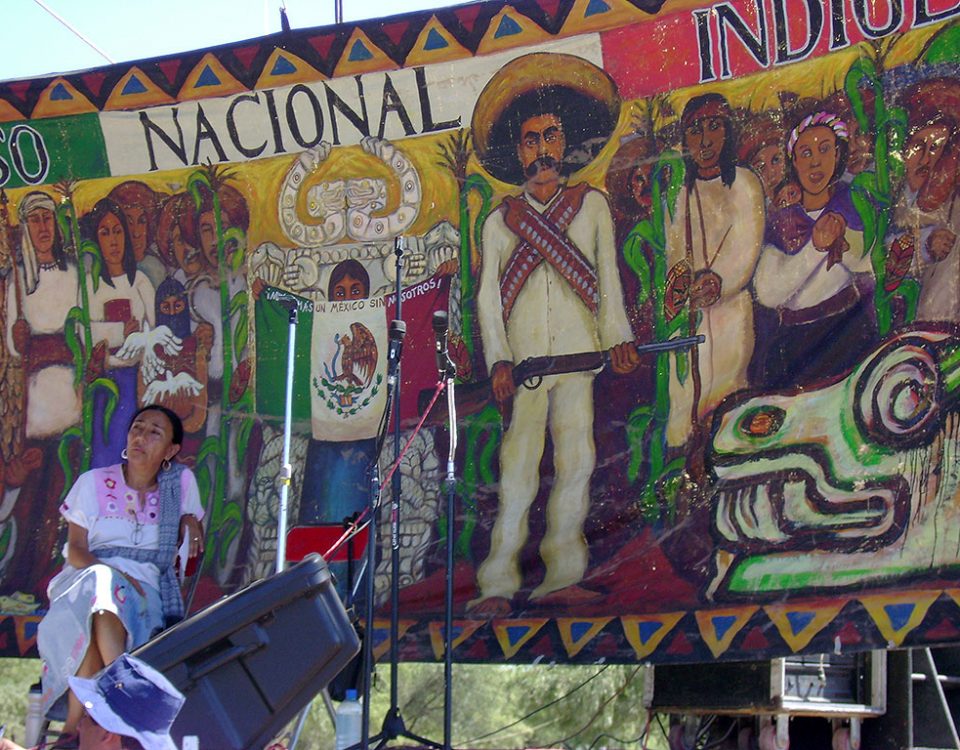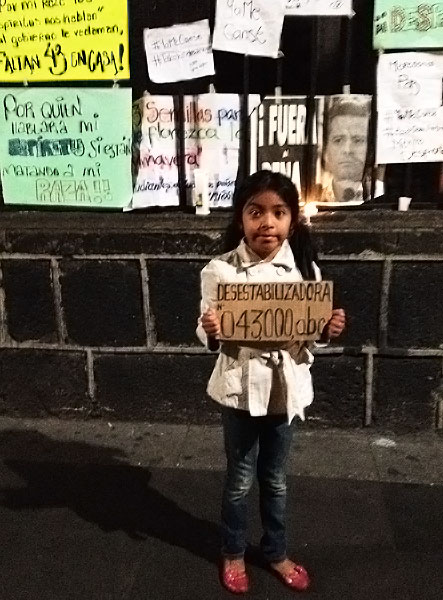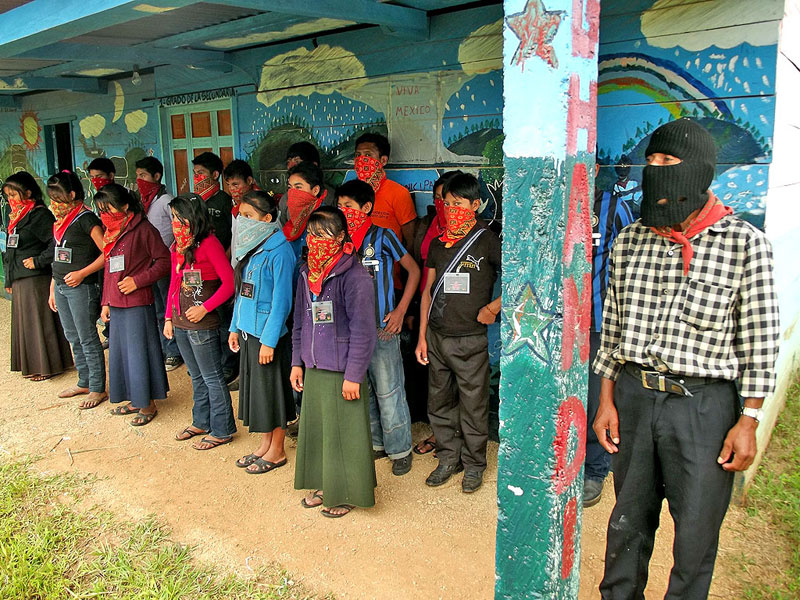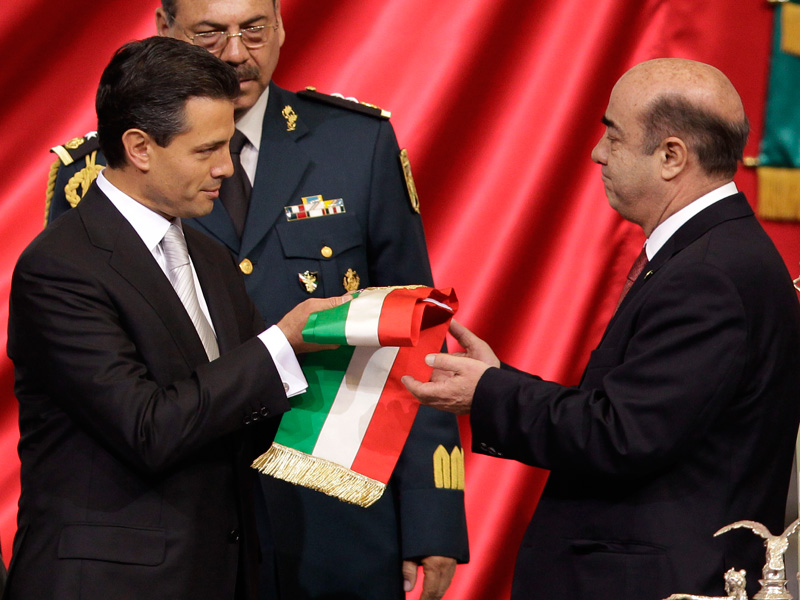2006
01/01/2007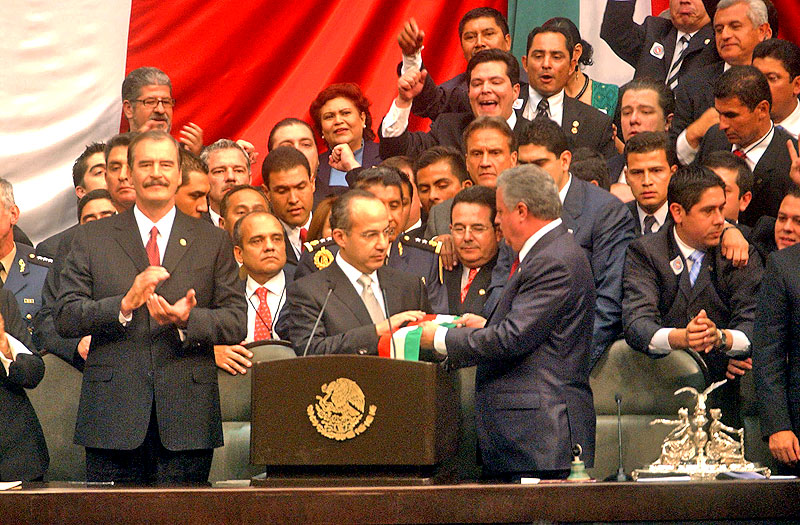
ANALYSIS: Mexico – New Governments, old Issues
30/03/2007On July 2nd, federal elections were held in Mexico. Due to the minimal margin between the two leading candidates, the announcement of the winner was not possible on the night of the elections. Finally, the Federal Electoral Institute (IFE) declared Felipe Calderón the winner, by a very slim margin against Andres Manuel López Obrador (Coalition for the Good of All). Legal challenges, which were ultimately rejected, were brought to the Electoral Tribunal of Judicial Power of the Federation (TEPJF).
 López Obrador called for massive mobilizations that paralyzed Mexico City for months, culminating in the National Democratic Convention (CND), which appointed him “legitimate president” in September, in the presence of hundreds of thousands of people.
López Obrador called for massive mobilizations that paralyzed Mexico City for months, culminating in the National Democratic Convention (CND), which appointed him “legitimate president” in September, in the presence of hundreds of thousands of people.
After a campaign marked by multiple irregularities, Juan Sabines Guerrero (who represented the Coalition for the Good of All even though he was the mayor of the capital of Chiapas for PRI a few weeks before the campaign started) won the state elections in Chiapas on the 20th of August by a very slim margin.
On January 1st, the national tour of the Other Campaign took off, led by the Delegate Zero (Subcomandante Marcos). In May, thousands of police officers tried to evict a group of street flower vendors in San Salvador Atenco (State of Mexico) that marched against the construction of a supermarket in the area they usually use for selling their products. A violent confrontation broke out, causing two deaths and the detention of hundreds of people. The police forces were accused of sexually abusing dozens of women, among other human rights violations. As a protest against these acts, Subcomandante Marcos declared a Red Alert in Chiapas and the national tour of the Other Campaign was suspended until October.
In March, the secretary of Interior declared that there is no longer a state of emergency in Chiapas caused by the armed conflict. He assured that the army’s presence in Chiapas only responds to the needs of Chiapas being a border state. Local NGOs report the presence of 70 military camps, only in the indigenous territories of Chiapas.
Conflicts especially with a agrarian profile continue in Chiapas. 30 Zapatista families were evicted in the community of Choles de Tumbalá in August. In November, 17 families from Viejo Velasco (Lacandona Jungle) were attacked by hundreds of peasants from the Lacandona Community. 4 people were killed and 4 disappeared, apparently executed. Throughout 2006, human rights defenders and activists in Chiapas were also subjected to violence: there were at least 20 cases of threats and harassment.
In Oaxaca, the education workers’ union called for a sit-in mobilizing more than 40,000 teachers. It started with the demand for better salaries, and was finally joined by numerous organizations and movements from Oaxaca and ended up prioritizing governor Ulises Ruiz’s removal. The mobilization formed the APPO, the Popular Assembly of the Peoples of Oaxaca. Numerous human rights violations against the popular movement by federal and state police officers were reported, including homicides, disappearances and hundreds of illegal detentions.

